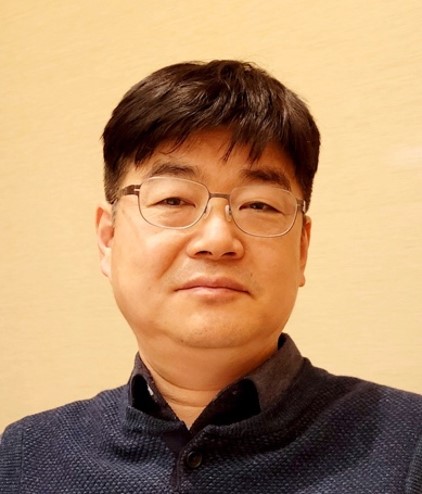

题目:Advances in Materials Characterization
时间:2024年10月31日 15:00-18:00
地点:机械与动力工程学院 振华会议室
邀请人:何霁 副教授(薄板结构制造研究所)
Biography
 Jeong Whan Yoon is currently a professor in the Department of Mechanical Engineering at KAIST, Korea and a joint research professor at Deakin University, Australia. He is a fellow of the Korean Academy of Science and Technology. Dr. Yoon's research areas include high-reliability design and manufacturing of lightweight materials and structures. He has been responsible for the High-Speed Mechanical Properties Data Center at KAIST since 2019. He has been leading the GM-chaired Research Center for Innovative Manufacturing (ICIM) at Deakin University since 2015. He also led research at the Boeing-chaired Manufacturing Research Center (AusAMRC) at Swinburne University. Dr. Yoon has published more than 300 technical papers in international academic journals and conferences. He received the “2008 International Journal of Plasticity Young Researcher Award”. He was also awarded the “2023 Khan International Award” for his lifetime outstanding contributions in the field of plasticity. He is currently Associate Editor of the International Journal of Plasticity. As a guest editor, he also edited over 15 special issues including Int. J. Plasticity and Int. J. Solids and Structures. Dr. Yoon has diverse industry experience, including LG Electronics (Korea), MSC Software Corporation (USA), and Alcoa Technical Center (USA). He has served as Chair of major conferences including NUMISHEET2014 held in Melbourne, Australia, APEA2018 held in Jeju Island, Korea, and ICPDF2023 & ICPDF2024 held in the Dominican Republic and Panama, respectively. He received his PhD from KAIST in 1997.
Jeong Whan Yoon is currently a professor in the Department of Mechanical Engineering at KAIST, Korea and a joint research professor at Deakin University, Australia. He is a fellow of the Korean Academy of Science and Technology. Dr. Yoon's research areas include high-reliability design and manufacturing of lightweight materials and structures. He has been responsible for the High-Speed Mechanical Properties Data Center at KAIST since 2019. He has been leading the GM-chaired Research Center for Innovative Manufacturing (ICIM) at Deakin University since 2015. He also led research at the Boeing-chaired Manufacturing Research Center (AusAMRC) at Swinburne University. Dr. Yoon has published more than 300 technical papers in international academic journals and conferences. He received the “2008 International Journal of Plasticity Young Researcher Award”. He was also awarded the “2023 Khan International Award” for his lifetime outstanding contributions in the field of plasticity. He is currently Associate Editor of the International Journal of Plasticity. As a guest editor, he also edited over 15 special issues including Int. J. Plasticity and Int. J. Solids and Structures. Dr. Yoon has diverse industry experience, including LG Electronics (Korea), MSC Software Corporation (USA), and Alcoa Technical Center (USA). He has served as Chair of major conferences including NUMISHEET2014 held in Melbourne, Australia, APEA2018 held in Jeju Island, Korea, and ICPDF2023 & ICPDF2024 held in the Dominican Republic and Panama, respectively. He received his PhD from KAIST in 1997.
Abstract
This report reviews new developments for materials characterization for constitutive and failure modeling, focusing on 1) smart factory research on high-strain rate data calibration, 2) laminated aluminum pouch film properties, 3) gradient properties in Al-Steel spot weld. First, smart factory research for high-strain data can be achievable through hardware automation and DIC technology. The capability is demonstrated with a new constructed automatic testing and calibration system. Second, lithium-ion battery pouch film is composed of polypropylene, aluminum, PET, and nylon. The material properties of the four layers are characterized by the delamination behavior between the aluminum and polymer layers during tensile testing and the polymer properties through nano-indentation testing. Individual layer properties are optimized to satisfy the combined stress-strain curve The modelled properties were verified through wrinkling and forming behaviors. Finally, aluminum-steel resistance spot welding (Al-steel RSW) is considered. This study develops an inhomogeneous sample to extract the material properties for the fusion zone (FZ), heat-affected zone (HAZ), and intermetallic compound (IMC) layers with a single tensile test. The results from inhomogeneous specimen is compared to the ones from homogeneous samples. Fracture mechanisms of Al-steel RSW are examined using a miniature weld performance test and in-situ micro DIC.